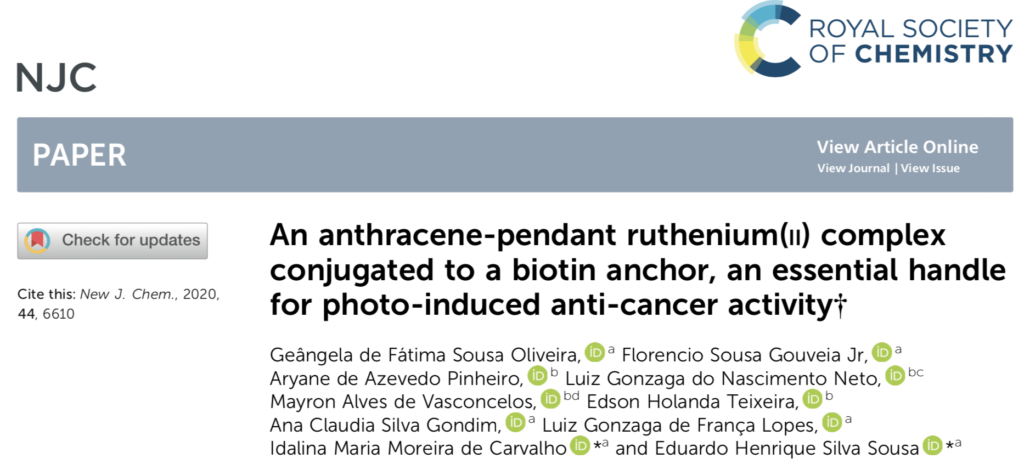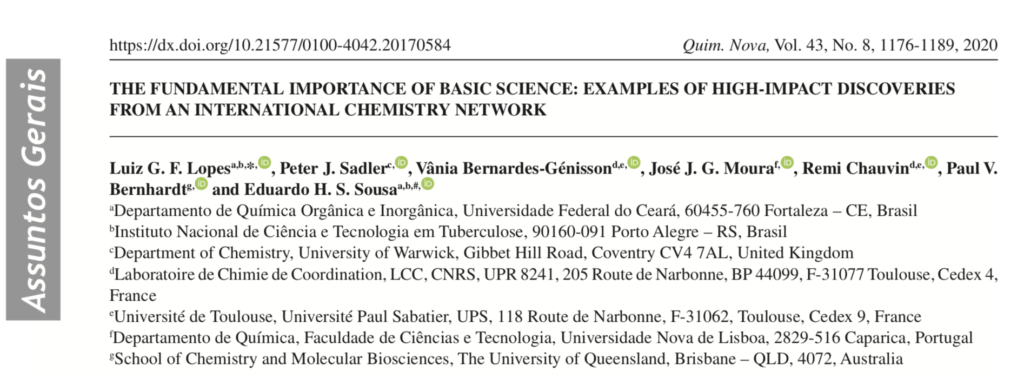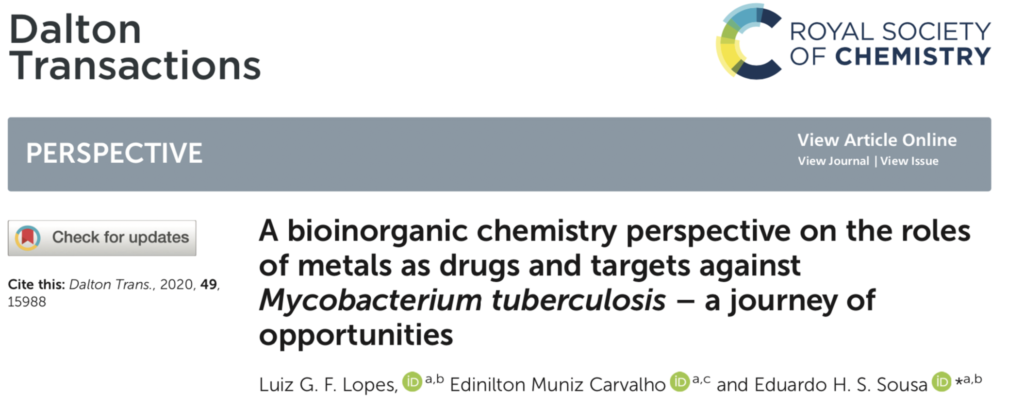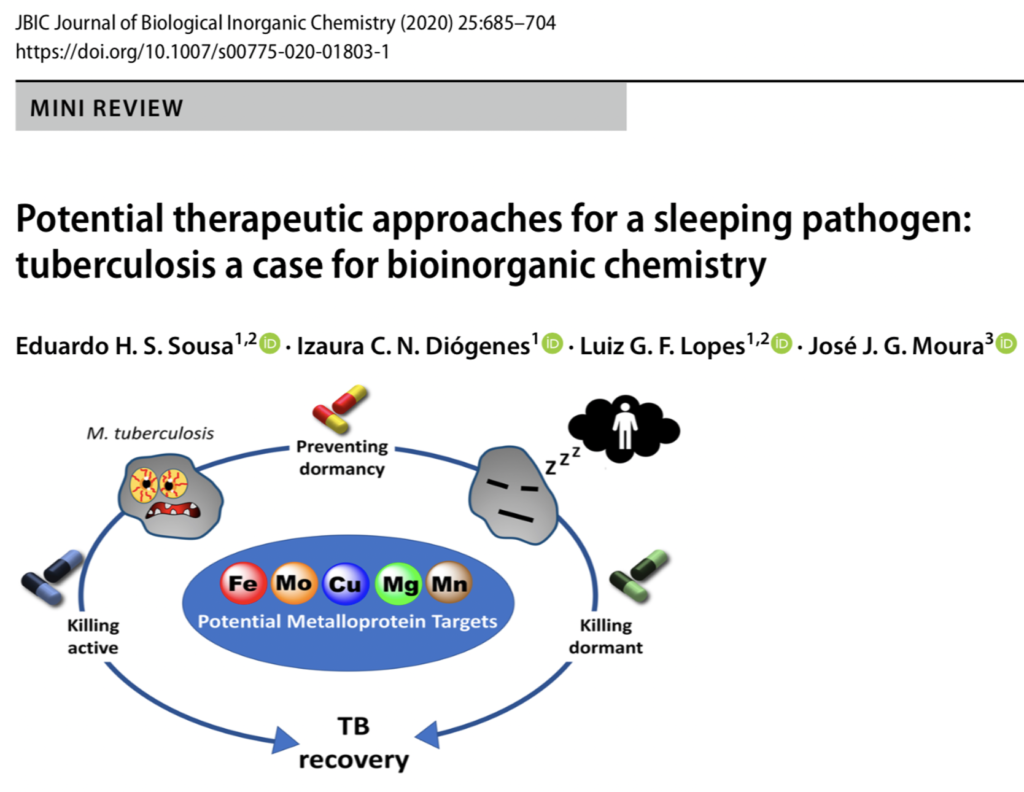
This study investigated how biotinylation of a ruthenium metal complex could improve its biological activities, particularly, its potential role in phototherapy of cancer, which was presented during the Week of Chemistry 2020 at the Federal University of Ceará. This work was carried out by Geângela Oliveira during her masters. Watch her video briefly explaining this study (in Portuguese). Find more information about this work in the published paper.

This paper (in video) is a join effort to illustrate the relevance of basic science investigation and its impact in humankind. This paper does not mean to broadly discuss this topic, but to present some relevant cases involving organic and (bio)inorganic chemistry. It was written by 7 scientists from 5 distinct countries in 3 continents. In a video, we describes the goals and briefly mention some histories, inviting everyone to read this essay. Watch this video (in Portuguese). Download for free this published paper.

This invited review was written and published in a special issue of the Dalton Transaction (New Talent: Americas) in 2020. At the beginning, we briefly mention the current problem of tuberculosis, and how it still kills over a million of people around the world. Then, we present a series of metal-based systems developed as novel anti-tuberculosis agents, including some systems of our lab, in particular focus on IQG607. Besides this, we also mention metalloproteins as target for tuberculosis therapy, where we describe a heme-based sensor investigated in our lab and associated to the dormancy process in Mycobacterium tuberculosis. We shed some light on those system as opportunities for the field, and believe it may be of general interest. Watch this video (in Portuguese). Download this published paper.

This mini-review was published in the Journal of Biological Inorganic Chemistry in 2020. This is a contribution to the bioinorganic chemistry community (and others) on the advances and potentialities of new drug targets of Mycobacterium tuberculosis (Mtb). The systems selected are associated with the dormancy process of Mtb and all of them are metalloproteins or metallo-dependent proteins. We shed some light on these system as opportunities for the development of novel drugs for tuberculosis, and believe it may be of much larger interest. Watch this video (in Portuguese). Download this published paper.